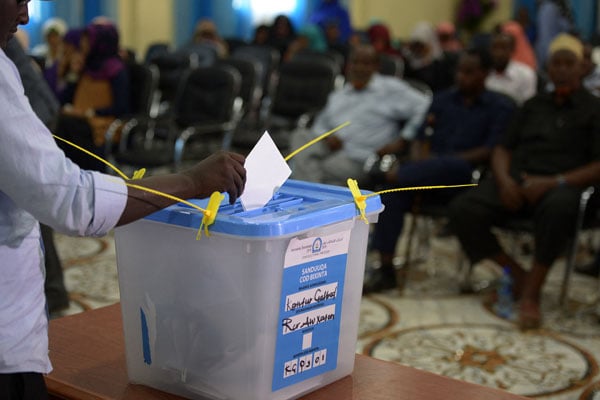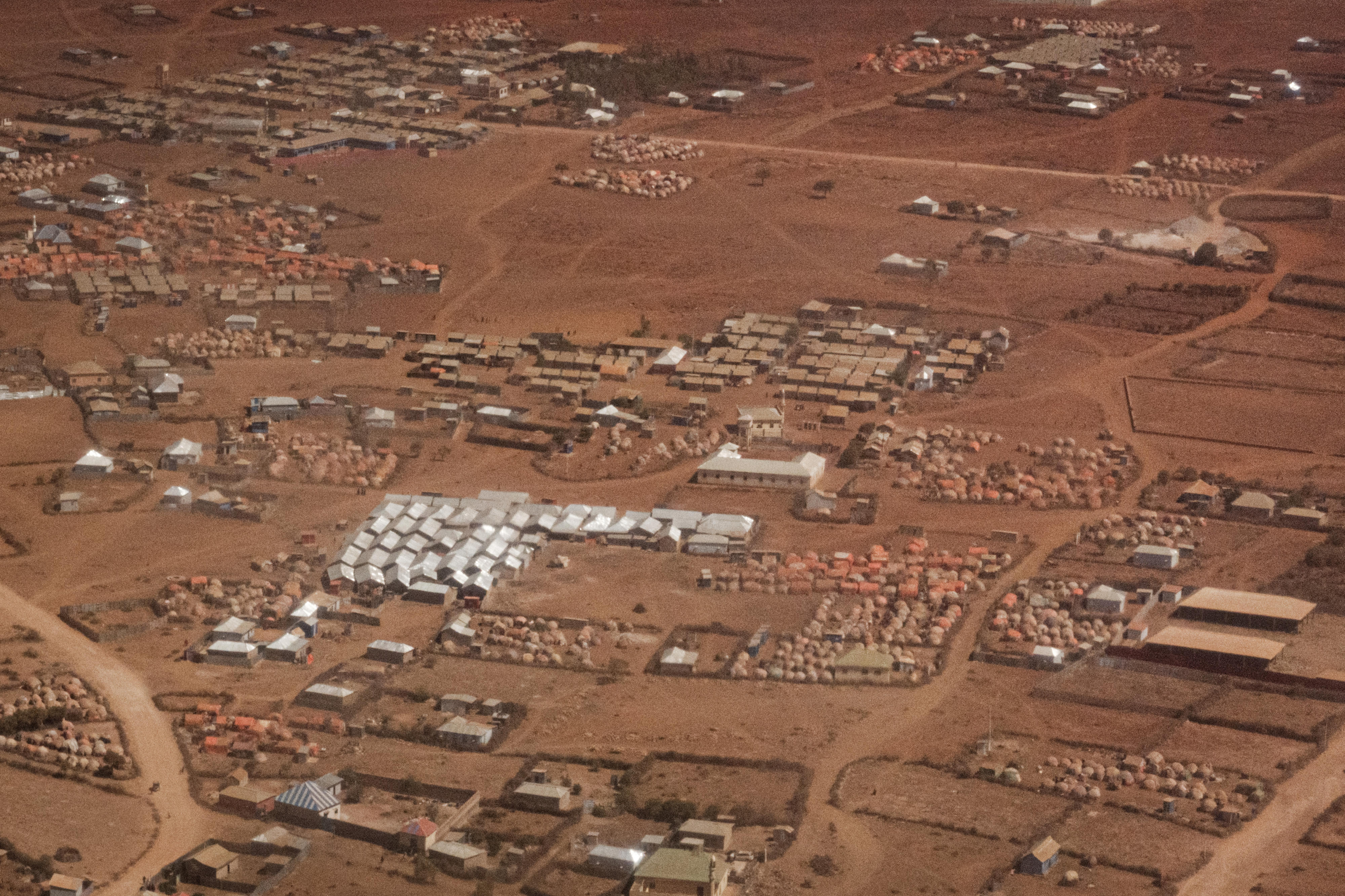37 candidates to battle it out in Somali presidential poll as two quit race

A person casts her ballot in Baidoa on November 16, 2016. Somalia will hold a long-awaited presidential election on May 15, 2022, ending months of delays, with the new leader set to confront huge challenges including a grinding Islamist insurgency and a punishing drought that has sparked famine fears. PHOTO/ AFP
What you need to know:
- The vote is expected to draw a line under a political crisis that erupted in February 2021, when President Mohamed Abdullahi Mohamed's term ended without a new election.
Two candidates who were vying for the presidential race in Somalia quit the race on Saturday, bringing the number of contenders to 37.
The race had attracted 39 contenders, the largest number in Somalia's history.
Abdikarim Hussein Guled, a former Interior minister and former president of Galmudug State, and Abdinasir Abdille Mohamed, a newcomer, announced on Saturday that they were quitting to support Abdishakur Abdirahman's candidacy.
A joint session of the Lower and Upper Houses of Parliament are set to vote for the president on Sunday.
Dozens of candidates are competing for the top job in the troubled Horn of Africa nation as it battles an Islamist insurgency and the threat of famine, with the vote already well over a year behind schedule.
The vote is expected to draw a line under a political crisis that erupted in February 2021, when President Mohamed Abdullahi Mohamed's term ended without a new election.
Somalia's international partners have long warned that the delays -- caused by political infighting -- were a dangerous distraction from the fight against Al-Shabaab jihadists.
President Mohamed, better known as Farmajo, is among 37 candidates in the running, along with former presidents Sharif Sheikh Ahmed and Hassan Sheikh Mohamud as well as ex-prime minister Hassan Ali Khaire.
Puntland state president Said Abdullahi Dani and former foreign minister Fawzia Yusuf Adan -- the lone female contender -- are also vying for the job.
Somalia has not held a one-person, one-vote election in 50 years. Instead, polls follow a complex indirect model, whereby state legislatures and clan delegates pick lawmakers for the national parliament, who in turn choose the president.
The election is likely to take several hours and stretch late into the night, with multiple rounds of voting expected as candidates drop out, narrowing the options until a winner is chosen.
The victor must secure the backing of two-thirds of parliament, which means a minimum of 184 votes.
The contenders have vowed to tackle Somalia's myriad problems and bring relief to citizens weary of violence by Al-Shabaab jihadists, surging inflation and a worsening drought that threatens to drive millions into famine.
Additional reporting by AFP





